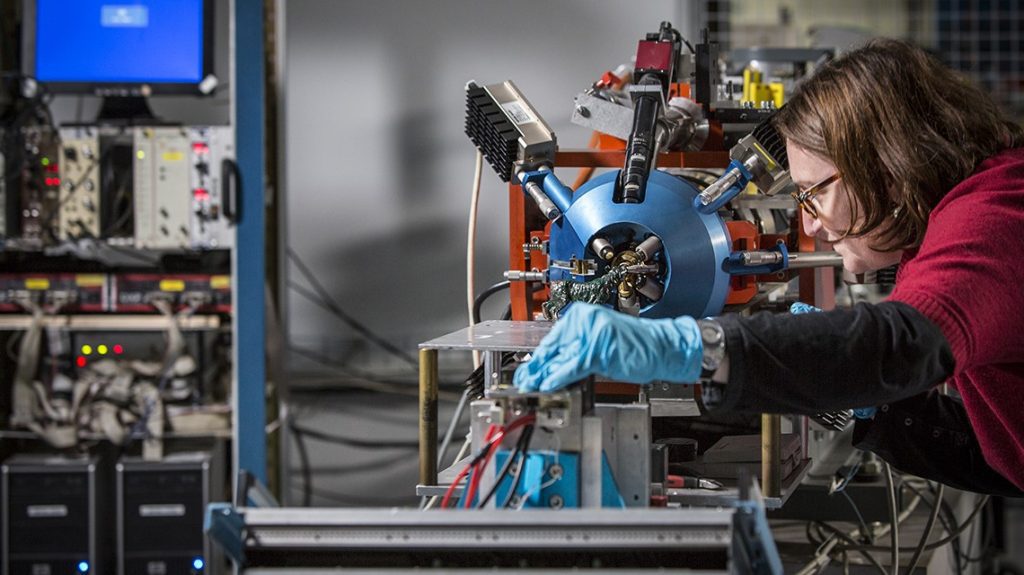Gender parity in the field of technology refers to the attainment of an equitable and proportionate representation of both males and females within the industry. The objective is to dismantle obstacles and guarantee that women get equitable opportunities and acknowledgment for their contributions within the domains of Science, Technology, Engineering, and Mathematics (STEM).
It is significant to note that companies with a substantial number of women in executive positions have the potential to generate profits and share performance that are up to 50 percent higher. Notwithstanding this compelling fact, the representation of women in science and engineering fields is 28% percent, while the ratio of women promoted to managerial positions in technology roles is 52 women for every 100 men.
In this blog, we will determine how we can expand our talent pool and embrace women innovators to effect positive change in terms of gender parity in technology.
Technology and Diversity: A Symbiotic Relationship
Diversity encourages innovation, and the technology sector is no exception. Equal leadership of women in tech spaces promotes sustainability and inclusion, transcending the technical capabilities of technology. The presence of a diverse workforce within companies enables the creation of products that effectively meet the needs of a broad range of users, thereby enhancing user safety and satisfaction. Female policymakers and technologists are making significant strides in emphasizing inclusivity and safety, thus paving the way for a technology-driven future that benefits humanity and reduces gender disparities.
Disparities in Tech: A Call to Action
The gender disparity in technology is an undeniable obstacle, preventing technological advancements from reaching their maximum potential. The representation of women in STEM education remains disproportionately low, with a mere 35 percent of positions being held by women. The technology industry exhibits a notable deficiency in terms of gender diversity, as women hold only 22% of employment opportunities within the artificial intelligence (AI) domain. In high-tech workplaces, where women continue to confront alarming dropout rates, the repercussions of such disparities are evident.
Additionally, unconscious bias and inequality are ingrained in widely used technologies, highlighting the urgent need for an egalitarian future of technology. Job Recruitment Algorithms, for instance, use AI algorithms to assess job applicants, but these algorithms are inadvertently biased against women due to historical imbalances in certain industries. Similarly, the representation of women characters in video games has criticized for being too sexualized or stereotypical.
Technology and the Empowerment of Women
Technology provides women and girls a voice and a lasting influence. Digital activism movements such as #MeToo have demonstrated the transformative power of collective action. Nonetheless, as technology advances, so do the complications. The threat of gendered disinformation, online violence against women, and the deployment of biased artificial intelligence technology is substantial. It is essential to utilize the potential of technology to advance equality, amplify women’s voices, and ensure a secure and inclusive digital space.

Collective Action: Empowering Women in Tech
To empower women in the sphere of technology, numerous stakeholders must collaborate. It is necessary to construct global technology platforms that prioritize human rights, transparency, and accountability. We must resolve the extant imbalances of power between digital service proprietors and consumers in order to ensure fairness and transparency. Collaboration between governments, civil society, the private sector, and the technical community is essential for the equitable distribution of digital technology’s benefits. By collaborating, we can establish an environment in which women in technology have equal opportunities to flourish and contribute to the advancement of society.

The Way Forward
The journey towards gender parity in technology will define our collective future, not just a battle for justice. By recognizing the contributions women make to the technology sector, we can herald in a new era of progress, innovation, and inclusiveness. Let us acknowledge the capacity of technology to emancipate women and ensure that their perspectives are heard in every aspect of the technology industry. Together, we have the ability to create a transformative and equitable technological landscape where opportunities are limitless and diversity is celebrated. The path may be difficult, but it is wise to recognize that when women ascend, humanity rises with them.
Disclaimer:
Any opinions expressed in this blog do not necessarily reflect the opinions of Gibbous. This content is meant for informational purposes only.







